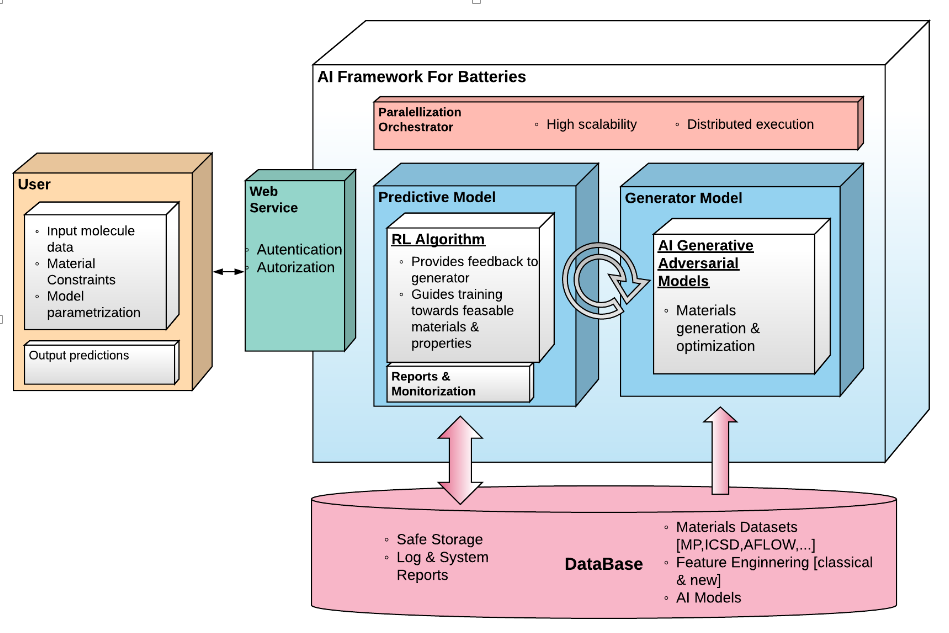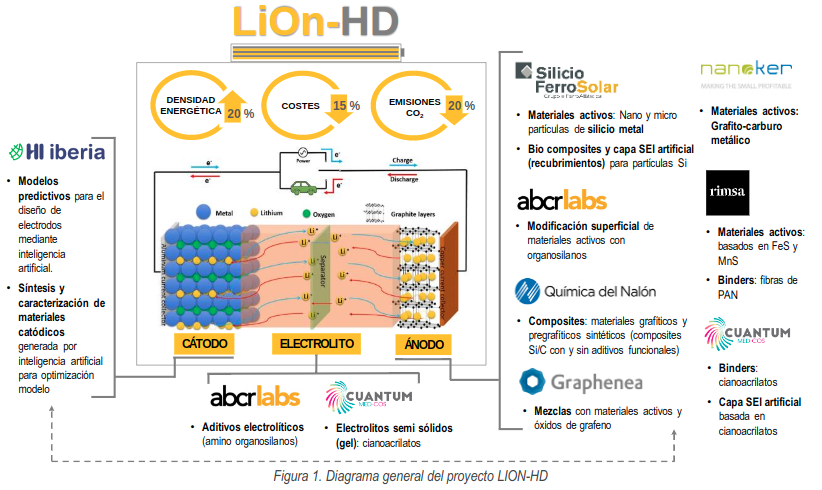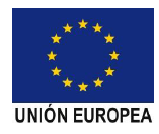Web LiOn (EN)
LiOn-HD: Industrial research of strategic materials for high energy density and cost optimized lithium-ion batteries in sustainable electromobility
The LiOn-HD project is included in the "Science and Innovation Missions 2020" program call of the Center for the Development of Industrial Technology (CDTI). It is a project that includes a diverse consortium collaborating to achieve the general objective: to significantly improve the energy density, reduce the cost and increase the sustainability of lithium-ion batteries.
One of the fields that is expected to expand the most due to the evolution of new technologies based on Artificial Intelligence (AI) is the discovery of new materials with desired properties. Specifically, the role of HI-Iberia is focused on the development of AI models capable of proposing materials for the cathode that meet the desired characteristics.
The AI framework combines the technologies of Deep Reinforcement Learning (DRL) and Generative Adversarial Networks (GAN) to train models capable of generating materials with chosen properties. This approach is based on the interaction between two models: a Generative Model that proposes materials and a Predictive Model that infers the properties of the material proposed by the Generative Model, as well as its viability in terms of stability. During the training, the output of each model serves as the input for the other, that is:
- The Generative Model proposes materials by combining defined base atoms/molecules.
- The Predictive Model takes these materials as input and infers their properties of interest (energy density, voltage, temperature...) and the theoretical stability of the material.
- The Predictive Model returns a value as a reward that relates to the distance between the properties of the proposed material and the desired/target properties.
- The Generative Model takes this reward value as a guide to direct the search in the latent space of materials during training.
 Once the Generative Model has been trained, it will be able to propose materials with desired properties. The suggested materials will be tested in the laboratory by the Institute of Materials Science of Madrid (ICMM), returning the experimental output to the AI framework to start a new iteration towards the process of obtaining suitable and reliable materials for use.
Once the Generative Model has been trained, it will be able to propose materials with desired properties. The suggested materials will be tested in the laboratory by the Institute of Materials Science of Madrid (ICMM), returning the experimental output to the AI framework to start a new iteration towards the process of obtaining suitable and reliable materials for use.
The search for disruptive materials will not only be massive but also intelligent. Therefore, a harmonious and multidisciplinary mix of powerful AI algorithms and state-of-the-art experimental techniques will ensure the success of a new commercialization plan for the project.

Este proyecto ha sido subvencionado por el Centro para el Desarrollo Tecnológico Industrial (CDTI) y cuenta con cofinanciación del Fondo Europeo de Desarrollo Regional (FEDER), en el marco de la convocatoria para el año 2019 del Programa MISIONES (EXP - 00133395 / MIG-20201021. Misión 2) con el apoyo del Ministerio de Ciencia e Innovación.
Fondo Europeo de
Desarrollo Regional (FEDER)
Una manera de hacer Europa



No Comments